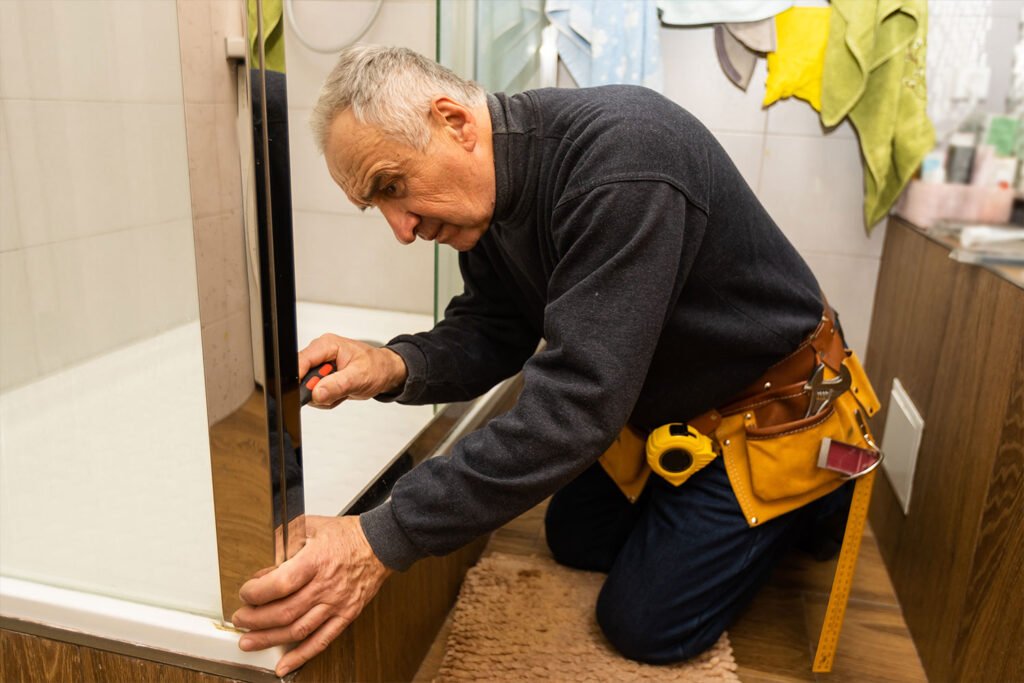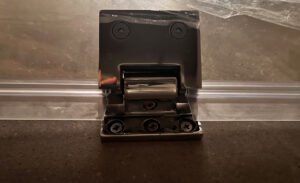Shower door hinges are a small but essential part of your bathroom’s security and use. A noisy shower door may indicate possible dangers in addition to being an annoyance. You may avoid future hassles and make sure your shower stays a tranquil, safe place by knowing when and how to oil your shower door hinges or when to replace them.
Don't Risks of Ignoring Squeaky Shower Door Hinges
Squeaky hinges on shower doors should not be overlooked, as they often indicate underlying issues that could lead to more serious problems.
Potential Dangers:
Safety Hazards: Unexpected door detachments due to loose hinges can be dangerous, particularly for glass doors, which could break and injure someone.
Water Damage and Slip Hazards: A poorly closed door may leak, creating puddles that raise the possibility of falls and slides. Over time, this wetness may also promote the growth of mildew and mold.
How to Replace Squeaky Shower Door Hinges Step-by-Step
If you’re faced with squeaky hinges, Here’s a helpful approach to deal with squeaky hinges in a practical manner.
Step 1: Tighten the Hinges
- Inspect and Tighten Screws: A major reason for squeaky doors is loose screws. To tighten them, use a screwdriver, but take care not to overtighten as this could strip the threads or harm the hinge.
Step 2: Identify the Squeak's Origin
- Find the Noise: To identify the source of the squeak, carefully open and close the door. It often emanates from the pivot hinge at the top due to the strain of the door’s weight.
Step 3: Clean the Hinges
- Eliminate Debris: The hinge and frame may become clogged with dirt and grit. To carefully scrape any debris away, use a toothbrush and liquid soap.
- Frequent Cleaning: To ensure smooth functioning and stop future squeaks, the hinge area must be kept clean.
Step 4: Lubricate the Hinges
- Apply silicon spray: Silicone spray works well since it can help dissolve corrosion and displace water. To work in the lubricant, spray straight onto the hinge and rock the door back and forth.
- Eliminate Excess: To avoid causing the shower floor to become slick, any spills or extra lubrication should be wiped up.
Step 5: Use Oil for Lasting Lubrication
- Apply Oil: Lubricate the hinge with a premium 3-in-1 oil after cleaning and initial maintenance. Longer-lasting lubrication and protection will result from this.
- Wipe Out Any Extra Oil: Make sure that no extra oil is left to run or drop, as this could lead to trip hazards.
When to Replace Your Shower Door Hinges
Although lubricating hinges can stop them from squeaking for a while, it won’t last if the hinges are badly worn out or broken. Here are some indicators that it’s time to think about replacing:
- Persistent Squeaking: When, in spite of routine maintenance, the squeaking continues to occur.
- Evident Rust or Corrosion: If the hinge’s metal has pits or flaking.
- Operating difficulty: If, despite changes, the door sticks or seems unstable.
In summary
Maintaining the safety and functionality of a crucial bathroom fixture is more important than simply reducing noise. This applies to your shower hinges as well. Your hinges can last longer if you give them regular cleaning and the right lubrication, but watch out for the warning indications that they should be replaced. Recall that the risk and inconvenience of a falling shower door are far greater than the small cost of fixing a hinge. Follow us at Showerglasshardware.com for information on how to maintain your bathroom and extend the life of your fixtures.




